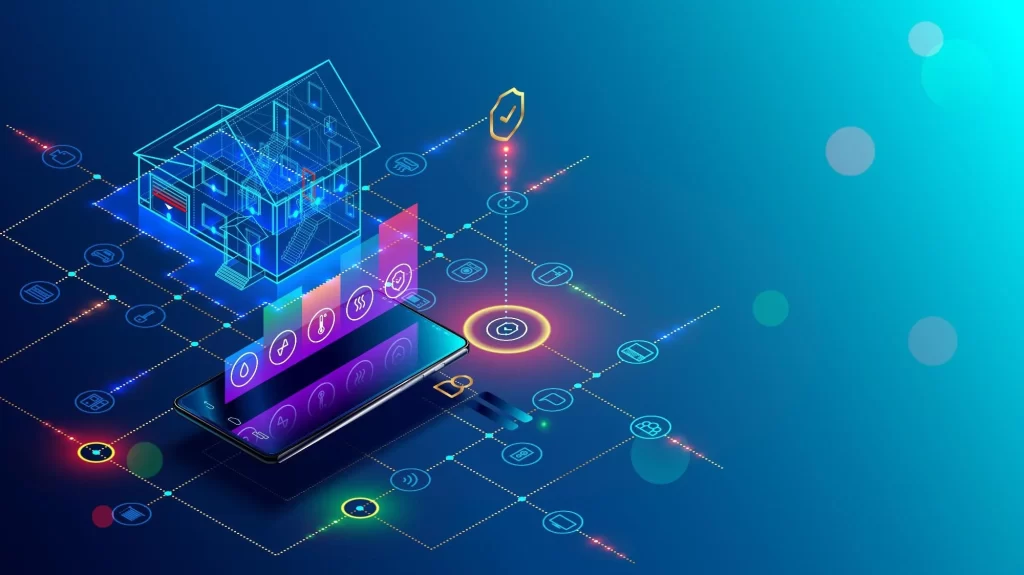There are many different uses of Artificial Intelligence, but one of the most exciting is in smart homes. This technology can learn human habits and interactions, predict user behavior, and develop situational awareness. But, just like anything else, there are some risks involved.
Learn human habits
A smart home system isn’t just about the latest gadgets and gadgetry. It also enables a savvy homeowner to conserve a few bucks by preempting human behaviour and reducing energy consumption. This is done through a combination of machine learning and behavioural algorithms. The likes of the Nest Thermostat will actually adjust the temperature of your home depending on who is in and out. Similarly, a Moen smart shower is able to set the right temperature for you. In the US alone, waiting for hot water to heat up wastes an estimated 280,000 gallons of water a day. Not to mention the costs associated with heating and cooling. By automating tasks such as these, a home owner can rest easy knowing that the house is in good hands.
Interact with each other
Artificial Intelligence (AI) is expected to be a breakthrough technology in the smart home market in the coming years. With the use of AI, homeowners will be able to perform a variety of tasks without any human intervention. Moreover, the technology will help conserve natural resources.
Moreover, the future of smart homes will include more connected devices that have perception and processing capabilities. They will be able to predict and respond to user behavior. This will increase the comfort and security of the home.
In fact, a number of industries are already integrating artificial intelligence into their smart home technologies. For example, manufacturers have been using smart chips to detect equipment problems. Some devices also send emergency alerts.
These devices can be used to control lights, appliances, and other electrical devices. They can also be used to analyze data. Moreover, they can transfer information to remote users.
Predict user behavior
Artificial intelligence can improve the performance of smart homes by predicting user behavior. It has the potential to automate tasks to save time and reduce operating costs. In addition, it can help homeowners reduce their impact on the environment by conserving natural resources. Moreover, it can preempt human behavior, thus making for a safer home.
Smart home technology has many applications in household appliances, entertainment, lighting, and security. Several key industries have begun to integrate AI with their smart devices. Eventually, these technologies will make homes and buildings more personalized.
For instance, an AI-powered oven can control the cooking process, while a smart security system can alert the user to an impending break-in. As the technologies continue to evolve, there are also concerns about privacy and ethical limits on the information collected from citizens.
Develop situational awareness
Situational awareness is a term used to describe a comprehensive understanding of the context and timing of a given situation. This is critical for operational success. A well-developed situational awareness is essential for detecting and preempting potential threats. In this paper, we investigate how the integration of artificial intelligence with smart devices can improve the quality of situational awareness.
Situational awareness is derived from the perception, analysis, and processing of information. It is a concept that has roots in military research in the 1980s and has expanded into academic study over the last two decades.
Situational awareness is important for decision makers across many industries. However, not all businesses have yet invested in the technologies.
Several industries, including government sectors, are expected to take advantage of situational awareness technologies. These technologies include connected devices and software solutions. They can improve operational efficiency and help companies gain a competitive edge. The market for situational awareness software is expected to grow by 8.2% annually through 2022 to reach $32.6 billion.
Security risks
Smart home technology is a great way to automate home tasks, such as turning on the lights when you arrive, and adjust the temperature to save energy when no one is home. However, it also brings with it new challenges to securing the home.
These devices have connected to the internet, making them vulnerable to attack. They also leave behind digital footprints of personal information. A malicious actor can gain access to this information and use it to perpetrate targeted attacks or solicit money from victims.
The data stored on smart devices is continuously processed and transmitted. There is no way to ensure the safety of this information. It is critical that consumers take recommended precautions to protect this data.
In the case of a smart lock, for instance, hackers could gain access and lock out the home’s residents. This makes the device an easy target for larceny.












More Stories
The Developer’s Guide to Spatial Computing and Mixed Reality Prototyping
Ethical Implementation Frameworks for Generative AI in Small Businesses
The Intersection of Web3 and Digital Ownership Rights: Actually Owning Your Stuff Online